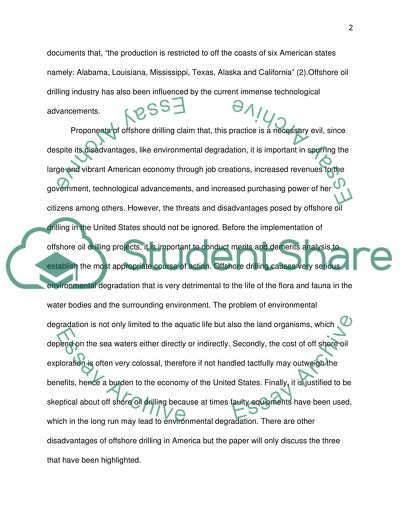Cite this document
(“Offshore Oil Drilling in America: Benefits and Consequences Research Paper”, n.d.)
Retrieved from https://studentshare.org/english/1397726-offshore-oil-drilling-in-america-benefits-and-consequences
Retrieved from https://studentshare.org/english/1397726-offshore-oil-drilling-in-america-benefits-and-consequences
(Offshore Oil Drilling in America: Benefits and Consequences Research Paper)
https://studentshare.org/english/1397726-offshore-oil-drilling-in-america-benefits-and-consequences.
https://studentshare.org/english/1397726-offshore-oil-drilling-in-america-benefits-and-consequences.
“Offshore Oil Drilling in America: Benefits and Consequences Research Paper”, n.d. https://studentshare.org/english/1397726-offshore-oil-drilling-in-america-benefits-and-consequences.


